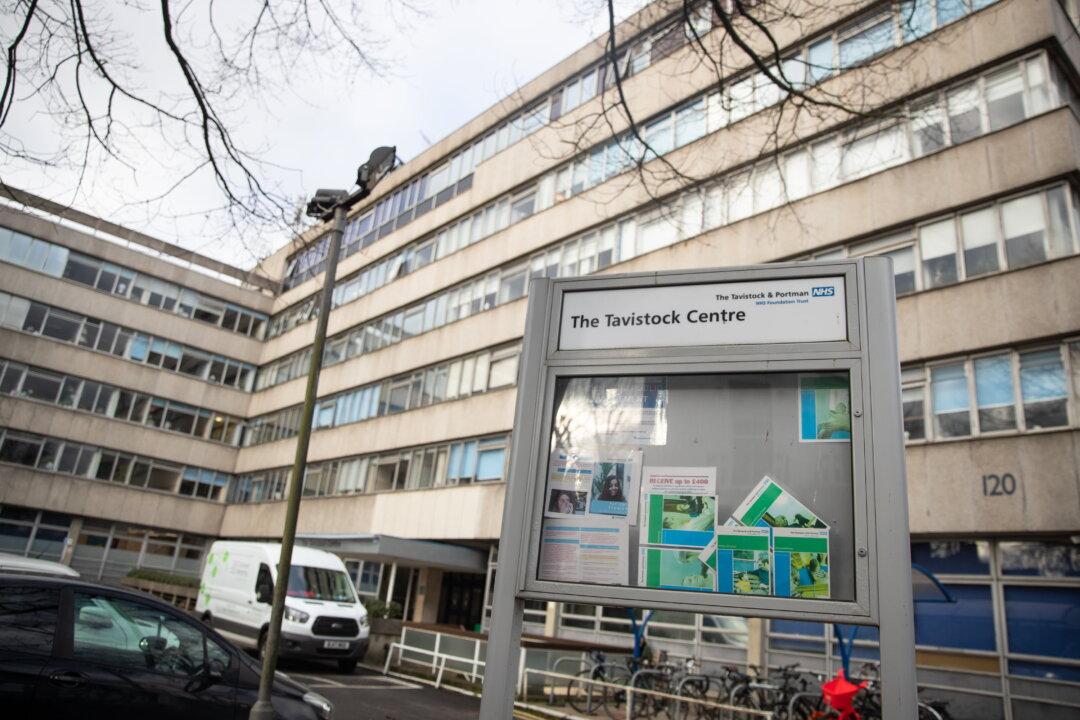Puberty blockers will only be given to children under a formal research protocol, new draft guidelines published on Thursday by National Health Service (NHS) England said.
The draft “interim service specification for specialist gender dysphoria services for children and young people” also restricted the encouragement of using “social transitioning”—such as using pronouns inconsistent with one’s biological sex and adopting the appearance of the opposite sex.





